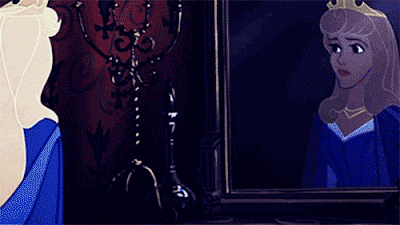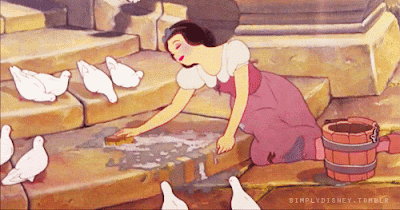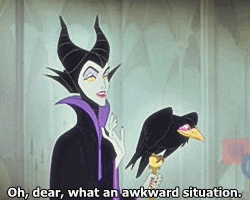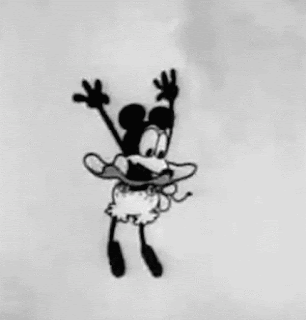Recently, I’ve noticed a strong social media movement aimed
at removing the stigma associated with mental health issues. Celebrities are
coming out to talk about their struggles with postpartum depression, people are bringing awareness to the many
different faces of eating disorders, and individuals turning to medication to treat their depression are finally viewed as heroic
rather than weak.
As someone who’s struggled with some of these issues myself,
I’m happy to see this push toward awareness and acceptance. I applaud the
individuals who’ve had the courage to emerge from the shadows, sharing their
stories and shedding light on the mental health problems that plague so many of
us.
I encourage them—and others—to keep these conversations
going.
But. BUT. I’d also like to clarify—perhaps even challenge—one of the themes that’s emerging
as a result of the push toward mental health disorder acceptance.
“You are not your disease.”
Think about it. How many times have you heard or read that
in one form or another?
You are not your depression.
You are not your anxiety.
You are not your eating disorder.
It’s that last one that really strikes a chord with me,
although I’ve struggled with my fair share of the other two as well.
Anyone who’s read my past work knows I have a long history with an eating disorder.
Scratch that. “History” is indicative of the past, and
mental health issues—even those you “recover” from—are never completely in your
past.
You see, sicknesses—like depression and eating disorders—change
you. Permanently.
They mark you. For life.
They leave scars: Some figurative, and some literal. Some
physical, and some emotional. Some that still have a tendency to jolt you awake
in the night, rousing you with a sharp, sudden twinge of pain; and some that leave
you with a dull, lingering ache—like a torn muscle that’s repaired itself, but
remains stiff and sore from the growth of new tissue.
Some that will never heal, and some that slowly numb with
the passage of time.
Some that make you feel weak, and some that make you feel
like a warrior.
Some visible, and some not.
But as someone who bears these kinds of scars, let me assure
you of this: Even if you—or others—can’t see
them, I know they’re there: carved into my mind, stitched into my heart, spanning
my very soul.
So, no, as many others have affirmed, I am NOT my disease.
I am NOT my eating disorder.
But it is a part of me.
It’s the part that
makes me push beyond my physical limitations. I’m a runner, and some days,
it’s the broken part of my soul that motivates me to keep moving. It’s the
brokenness that fuels my determination, that help me focus, that makes me feel strong.
Odd, I know, how the very thing that once starved my body
now fuels my soul; but my eating disorder reminds me of weakness, and that
drives me toward strength. I know what it is to live in a body so emaciated it
can barely function, and because I
remember that feeling, I now revel in its renowned power.
I take pride in the swell of my leg muscles as they continue
to carry me forward.
It’s the part that
ensures my children are cared for, even when I’m exhausted. I am all too
familiar with the abyss a person can fall into when not properly nourished—either
physically or spiritually—and I refuse to watch my children fall into that
black hole of self-destruction.
So even when I’m frustrated, or tired, or battling my own personal
demons, I make sure my boys are well-fed. I make sure they know they are loved.
I make sure they are aware that they are always, always ENOUGH.
It’s the part that
inspires me to write, to connect to others through my words. I can’t stand
the thought of others suffering the way I once did, the way I sometimes still do.
It’s the part that
makes every laugh, every smile, every tiny personal victory, a little brighter.
It’s a matter of perception: light always looks more radiant in the presence of
darkness.
It’s the part that
gives me perspective. I can see now that memories, not calories, are what count.
It’s the part that
makes every bite of cake, every spoonful of peanut butter, and every
finger-lick of cream cheese taste SO FREAKING GOOD. How—HOW—did I ever live without this stuff?
It’s the part that
reminds me to cherish every moment of this life (no matter how corny that
sounds). Because it brought me so close to the brink of losing it.
It’s the part that
makes me irrevocably, uniquely ME. It’s a part of my past, a part of my
story, a part of who I’ve grown to be.
In an ironic way, my eating disorder has given me substance.
Its scars fill my soul with joy by reminding me of the misery that accompanies emptiness
(both literally and figuratively speaking).
Sometimes, I like to think of myself as an Easter egg. (My
boys are obsessed with Easter eggs, even as we approach Christmas). A fresh egg
is fragile. Its shell is prone to crack, and if it does, everything inside of
it—what makes it an egg—leaks out.
But when you boil an egg—when you expose it to heat and stress,
when you push it to its breaking point—you give it substance. You make it
tough. Then, even if its shell cracks a bit, the inside remains unchanged. It is
solid. It is resilient.
And it has the potential to be any color you choose it to
be.
I am not a disease. I am no more a disease than I am a
number on a scale (something it has taken me a long time to acknowledge and
accept).









































